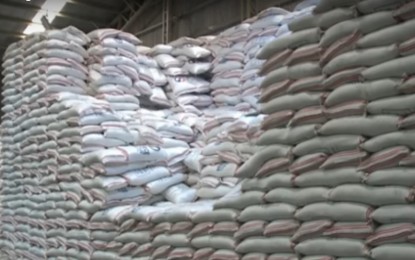
MANILA -- Unscrupulous traders may be one of the reasons why farmers cannot feel the full effects of the Rice Tariffication Law, a Palace official said on Monday.
Amid farmer groups’ complaints that the law had led to falling farm gate prices of palay, Cabinet Secretary Karlo Nograles maintained that the law serves a good purpose and that abusive traders could be to blame.
“Right now, the Philippine Competition Commission is also taking a look at possible rice hoarding by some unscrupulous traders. It might not be as simple as a supply and demand problem. Meron ding manipulation kasing nangyayari (there is also manipulation happening),” Nograles said over a phone interview with Palace reporters.
“Baka (Perhaps) the reason why the market is not feeling the full effects of benefits of rice tariffication is because of unscrupulous traders who are hoarding. So, siyempre, pag magi-import, baka hindi agad binibenta sa merkado (of course when you import, they might not be selling it to the market immediately),” he added.
Nograles, meanwhile, said it would be “hypothetical” to assume President Rodrigo Duterte would be violating the law by suspending rice importation during the harvest period.
Earlier, Presidential Spokesperson Salvador Panelo clarified that Duterte did not ask Agriculture Secretary William Dar to implement any suspension of rice importation.
“Wala pa namang inissue si Pangulo (The President didn’t issue any directive yet) so that’s hypothetical that’s why pag-uusapan pa yan ng (it will be discussed among) economic managers pati ng (and even the) Department of Agriculture,” Nograles said.
He also bared that Duterte has offered to hold a dialogue with local farmers to discuss their concerns, particularly the adverse effects of tariffication.
When the country experienced an artificial rice shortage last year, Duterte warned rice traders that he would not hesitate to order military and police raids on warehouses.
Duterte signed the Rice Tariffication Law last February to allow unlimited rice importation, but investors must first secure a phytosanitary permit from the Bureau of Plant Industry and pay the 35-percent tariff for shipments from Southeast Asia. (PNA)
